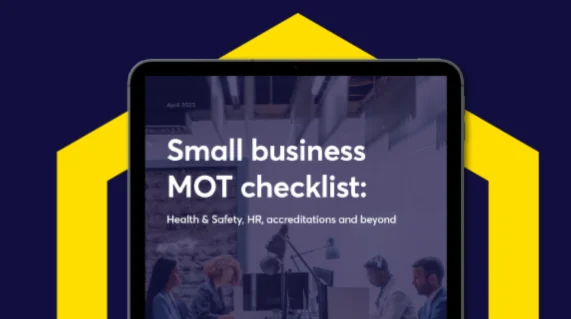Mental ill health affects one in six workers in the UK. Conditions range from stress and anxiety through to more serious conditions such as bipolar and schizophrenia. It is essential that employers understand these conditions and know how best to support workers. Historical concepts such as “madness” are simply outdated. They should have no place in any organisations thinking today.
Mental illness is literally that – an illness – and is just like any other illness an employee may present with. Making reasonable adjustments to the workplace, as well as identifying areas that cause additional stress are two ways of working towards a happier, more productive workforce.
Key risk factors
Stressors are things that cause stress and triggers are things that can start feelings of anxiety. Stressors in the workplace could be targets, workload, long hours or feeling undervalued. Triggers in the workplace could include having to speak in front of a large group of people, having poor self-esteem or having too much pressure.
There are six things in the workplace that can lead to or exasperate work related stress, theses are:
- demands: employees can struggle to cope with the demands of their job
- control: employees may feel unable to have a say about the way they do their work
- support: employees may feel that they do not receive adequate information and support from their colleagues and superiors
- relationships: employees may be subjected to unacceptable behaviours, eg bullying at work
- role: employees may not fully understand their role and responsibilities or perceive they lack appropriate training
- change: employees may feel that the organisation does not engage with them frequently when undergoing an organisational change.
Mental health problems in the workplace can lead to a high turnover over in staff, presenteeism, absence, mistakes, low productivity, accidents and errors if not managed effectively.
Did you know?
- One worker in six has a mental health condition
- aproximately 75% of workplaces do not have a workplace policy regarding mental health
- mental health problems cost employers £30 bn per year.
Key definitions
Mental health: a state of well being in which an individual can cope with the normal stresses of life and can work productively.
Mental ill health: a person’s emotional well being has been affected.
Reasonable adjustments: changes to enable a person to work more easily and give them the equal opportunities.
Presenteeism: the act of attending work while sick.
Stress: the feeling of being under too much mental or emotional pressure.
Depression: ranges from lasting feelings of sadness and hopelessness to losing interest in the things you used to enjoy and feeling very tearful or anxious.
Anxiety: a feeling of unease, such as worry or fear, that can be mild or severe.
Case law
Walker v Northumberland County Council
A social worker, Mr. Walker, dealing with child abuse cases was overloaded with work and not given enough support. He was diagnosed with stress related anxiety following two breakdowns and was dismissed by the Council on the grounds of permanent ill health.
The Council was found to have breached its duty and costs were:
- damages of £175,000
- £150,000 for the 2 week trial sick pay
- sick pay
- ill health pension
Recommendations for employers:
- understand mental health: educate yourself on the most common conditions and the relevant legislation and industry guidance
- create a business case: employers need to understand the positive business reasons of supporting staff with mental ill health. It is key to understand issues such as conflict, presenteeism, employee engagement and staff turnover
- understand the recruitment process: when going through the recruitment process it is key to take into account legislation surrounding pre-employment questionnaires, equality and data protection; that protects people suffering mental ill health
- ensure the best possible working environment: promote a happy workforce with management consultation and support offered to employees. Make fair inclusive decisions
- guarantee early intervention: make sure you can spot the signs of workplace stressors, or notice the early signs of a mental health illness to stop a problem from escalating
- encourage disclosure: talk to employees in a supportive and confidential way in order to allow them to be honest about their feelings. If possible draw up a document that identifies triggers and reasonable adjustments. Consider if an ethics or whistelblowing helpline should be set up to ensure that unacceptable behaviour can be reported and investigated an early stage
- promote rehabilitation: understand the return to work process from fit notes to reasonable adjustments and communicate this to the relevant people. Ensure a process is in place for those returning to work, which allows them the best possible integration and support.
Key points for employers to remain fair and equal:
- as an employer you must not treat a disabled person less favourably than another employee because of disability
- you must not treat an employee badly because you think they have a disability
- you must not treat an employee unfavourably where this is a link to a disability
- you must make reasonable adjustments to work practices, and provide other aids and adaptations, for disabled employees
- the law covers employees during recruitment, employment and if they are being dismissed for any reason, including redundancy
- you are not allowed to use ‘pre-employment questionnaires’ to ask about health before you offer a job except in very specific circumstances.
Legal requirements
- The Equality Act 2010: repealed the Disability Discrimination Act (DDA). The aim of the Act is to protect disabled people and prevent disability discrimination. Under the Act a person is defined as disabled if they have a physical or mental impairment or the impairment has a substantial and long-term adverse effect on their ability to perform normal day-to-day activities
- The Health and Safety at Work etc Act 1974: sets out your responsibilities as an employer and shows how you can put your duty of care into practice in the workplace
- The Mental Health Act 2007
- The Mental Capacity Act 2005
- The Human Rights Act 1998
- The Management Health and Safety at Work Regulations 1999.
These are to establish if the applicant can take part in an assessment to determine whether any resonable adjustments need to be made to enable a disabled person to participate in an assessment during the recruitment process and to find out if a job applicant is able to perform a function which is intrinsic to the job.








